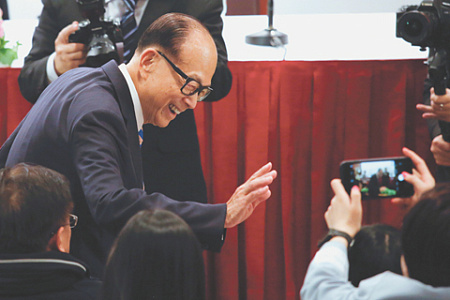
The United States considered the entry of about 300 people into its territory illegal and deported them to Panama. “Illegals,” including Russians, are rushing between Western embassies in search of visas, asking for help from the UN, but so far in vain. The drama with these people is playing out against the backdrop of the geopolitical conflict between America and China. US President Donald Trump has accused China of taking over the Panama Canal. The Hong Kong company that controlled the ports on the channel decided to sell its assets to the American firm Blackrock. Beijing is unhappy with this deal and is trying to prevent it.
According to the AP news agency, fugitives from Afghanistan, Iran, Russia and China applied for visas at embassies and consulates of several states, but the attempts were unsuccessful. Previously, international humanitarian organizations took care of these people, but now they feel abandoned.
The deportation took place back in February. Some of the exiles agreed to return to their countries. And the rest were put in a jungle camp by the Panamanian authorities. In March, the government released the refugees from the camp, obliging them to leave Panama within a month. Not knowing Spanish, and having scant funds, they applied to the diplomatic missions of Canada, Britain, Australia, and Switzerland. They were either shown the door, or offered to call and email. But there was no response to the messages, or a pay phone said that the embassy could not help.
Russian Alexander Surgin said he did not know what to do next. Khayyatullah Omah, an Afghan, says he is an atheist and belongs to the Hazara ethnic minority. According to him, returning to Afghanistan under the current Taliban regime (a terrorist organization banned in Russia) means death. The head of the UN refugee agency also could not do anything to encourage people in trouble.
However, experts’ attention is currently focused not so much on the plight of refugees as on the political and economic conflict between the United States and China over the Panama Canal. The fact is that the famous Hong Kong conglomerate C. K. Hutchison Holdings decided to sell its assets on the Panama Canal (in fact, these are four ports on the western and eastern sides of the canal) to the American investment bank Blackrock.
This deal angered Beijing. As a result, business bosses in Hong Kong, including 77-year-old billionaire Li Kashin, may become whipping boys. John Lee, the head of the Hong Kong administration, said that the deal entered into by CK Hutchison Holdings was alarming. “We call on foreign governments to ensure fair conditions for businesses. We oppose the use of methods of coercion and intimidation in international trade and economic relations,” he stressed.
Hong Kong’s top official, however, refrained from mentioning Trump, who threatened to return the channel to America. He also did not mention Li Kashin’s family, which owns a controlling stake in the conglomerate.
Panamanian President Jose Raul Mulino called reports that the United States wants to regain the channel a fiction. Panama, he said, fully controls the waterway. The president’s comment followed the publication of extremely negative assessments of the deal in two newspapers in Hong Kong. One newspaper called the deal treacherous, an arrangement that completely ignores China’s national interests. The publication of these articles can be seen as a hearsay attack by Chinese leaders on the conglomerate. On the other hand, Trump, who claimed that China was allegedly overseeing a critical shipping line, welcomed the deal.
In Beijing, Foreign Ministry spokeswoman Mao Ning, like Hong Kong’s top official, condemned the coercive methods used by “other countries” in trade. And CK Hutchison Holdings itself does not give any comments. And it’s not hard to see why. The deal is valued at $23 billion, and it includes debts of $5 billion. If approved, the deal will give Blackrock the ability to control more than just ports on both sides of the Panama Canal. After all, the Hong Kong-based firm also controls ports in Mexico, the Netherlands, Egypt, Pakistan and other countries.
The deal needs approval from the Government of Panama. As one might expect, Panama claims to have full control of the channel. And Hutchison’s operations do not mean that China controls the channel. Also, the sale of assets of an American company does not mean that the United States has regained the channel.
Sherissa Pham, an expert at the American broadcaster NPR, says that Hong Kong tycoons are selling their ports for an impressive sum. Moreover, they are emerging from the trap of Sino-American geopolitical rivalry.
However, The Financial Times questioned the voluntary withdrawal of conglomerate C. K. Hutchison Holdings from Panama. She writes that his shares fell by 5% after the deal was announced. Beijing, according to observers in the West, will try to regain its position. It was not for nothing that Ma Hui, deputy head of the International Department of the CPC Central Committee, visited Panama and held talks with local officials.
